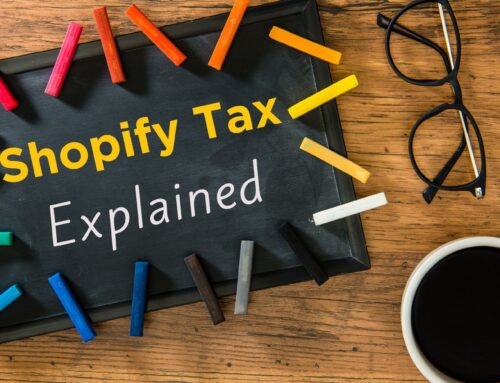
Your Shopify business is taking off, and you realize that you now have a real business. You also realize that now you have to deal with all sorts of things you’ve never dealt with before, including keeping up with the financial side of your business. Running a Shopify business can certainly bring up a lot of questions. One of the biggest ones is: should you DIY your Shopify bookkeeping? There are some important factors to consider when deciding if you should take your Shopify bookkeeping into your own hands. Let’s talk about what you need to know and do for DIY Shopify bookkeeping.
Click on the video link below to watch: Should you DIY your Shopify Bookkeeping?
#1: Choose your accounting software.
One of the first factors to consider is which accounting software you will use for your Shopify bookkeeping. The software that I recommend and work with is QuickBooks Online. This is a completely cloud-based accounting software, accessible any-time, anywhere, accommodates multiple users, and offers the ability to sync to hundreds of apps. If you are new to QuickBooks Online, you will find many tutorials and tips & tricks to help guide you, both on my 5minutebookkeeping.com website and on my 5 Minute Bookkeeping YouTube channel’s playlist dedicated to QuickBooks Online training and tutorials. You can also use the following link to sign up for QuickBooks Online, for a discount of up to 50% off for 3 months.
#2: Set up the books correctly.
I encourage you to pay special attention to the chart of accounts and settings because that is the foundation of your books. In order for your financials to tell an accurate story of your business (and your profitability), you really must have a good chart of accounts that is customized specifically to Shopify.
#3: Pick an integration with Shopify.
One question I’m asked a lot by Shopify sellers is, “What kind of integration should I set up between Shopify and QuickBooks Online?” My answer is that while there are many choices, most of the apps out there don’t work very well, and do not integrate well with QuickBooks Online. If you are looking for a good app to integrate QuickBooks Online with Shopify, the app that I recommend is A2X.
If you haven’t heard of this app before, A2X is my go-to app for syncing Shopify and QuickBooks Online. It allows you to import summarized transactions into QuickBooks, avoiding a giant data dump. The key to making sure things run smoothly is to ensure that the integration between A2X and QuickBooks Online is set up correctly. For my tour of the Shopify to QuickBooks Online integration using A2X, click here. You can get 20% off your first 6 months with A2X using this discount code: VM_20_6MON_2021
#4: Understand Shopify bookkeeping basics.
Doing Shopify bookkeeping is very different from other kinds of bookkeeping. You need to record all components of income, and not just the deposits that you see in your bank account. You also need to reconcile amounts received from all of your payment processors, and you need to know how to record inventory and cost of goods sold. Finally, you’ll also need to do your bank reconciliations and close the books each month.
Here’s a quick checklist for the essentials of Shopify bookkeeping:
- Record all income components.
- Reconcile amounts received from all of your payment processors.
- Record inventory and cost of goods sold.
- Reconcile you bank and credit card accounts and close the books each month.
#5: You need to dedicate time to doing your books.
This one may seem obvious at first, but can be more challenging when you consider all of your other responsibilities when running your Shopify business. You must be willing to invest time to learn how to work on your books, and then devote that time to keeping your books up to date, at least on a weekly basis. I have seen many Shopify sellers with the best of intentions, fall behind on their books when other business priorities take them away from their bookkeeping routine. Consistency is key.
#6 Where are you in your business journey?
As your Shopify business goes through stages of growth, your ability and availability to DIY your books may change over time. As a general rule, if your business is under a hundred thousand dollars in revenues, you can probably DIY your Shopify bookkeeping.
However, if you’re growing fast, you’ll need to be able to free up your time to grow your business. You’ll need clarity into your profits and your cash flow also. At some point, you’ll need to work with a professional to help you get your books set up correctly.
Closing
So should you DIY your Shopify bookkeeping? The answer depends on how quickly you are growing, and whether or not you have the time to devote to keeping your books in order. No matter what, DIY Shopify bookkeeping requires an understanding of some complicated bookkeeping procedures, and works best with the right accounting software and app integration in place.
At my company, VM Wasek, we work with Shopify sellers so that they can get their books set up correctly. We can set up the integration with Shopify for you, we can coach you so you can continue to DIY your books, or we can do the books for you. If you’re ready to work with an experienced and reliable Shopify accounting pro, click here to learn more about my services and how we might work together.
In the meantime, I encourage you to access all my free resources, like my free Shopify Bookkeeping Blueprint. And join my Facebook community to connect with fellow DIY bookkeepers as well as professionals.




